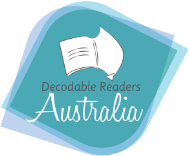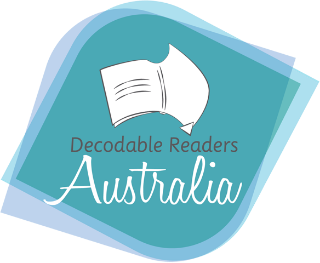
The Sounds Of Reading - Evidence Based Resources Series 5
Episode 1: What Is Oral Language and How To Support the Development Of It
Oral Language is the foundation of all learning! It is the system through which we use spoken words to express knowledge, ideas, opinions and feelings. Developing oral language, then, means developing the skills and knowledge that go into listening and speaking, all of which have a strong relationship to reading and to writing.
It is important as educators that we provide opportunities for students to develop receptive and expressive language, and one way that we can do this is through scaffolded conversation.
* If you suspect a language delays, seek professional advice and assessments through speech pathologists.
Episode 2: Why Is It So Important to Get 'Phoneme Pronunciations' Right?
The starting point to reading is sound and knowing individual phonemes (speech sounds). This video will teach the importance of explicit instruction for phoneme introductions and what it means for vulnerable students. There's also some hints and tips along the way. Tapping into professional speech pathologists is the key and we highly recommend Alison Clarke from Spelfabet https://www.spelfabet.com.au
Alison has made a great video outlining the 44 English speech sounds: https://youtu.be/KlMDwolcfzU
Episode 3: Teach Phonemic Awareness In Ways That Will Stick!
Phonemic Awareness is a vital component of the reading and spelling process and therefore should be incorporated into an evidence based curriculum. This video will explain Phonemic Awareness skills from beginner to advanced levels and give you some hints and tips to maximise results. It will also share with you how Phonemic Awareness is incorporated in our Sounds of Reading Toolkits. Check out our Sounds Of Reading Toolkits in our shop!
Episode 4: 5 Key Considerations When Introducing Graphemes
Phoneme-grapheme relationship are the foundational building blocks of the orthographic code so introducing graphemes (letters) and mapping these to speech sounds is the crucial part of the 'learning to read' process.
This video gives you 5 key considerations when implementing this phase of learning in your classrooms.
Episode 5: How Do I Teach Word Blending Effectively?
There are some key considerations when explicitly teaching word blending to children first learning to read. This video takes you through these key considerations while giving you some hints and tips for classroom practice. The resources shown in this video are from our Sounds Of Reading Toolkits.
Episode 6: The Importance of Daily Word Work and What Steps To Take
Decoding (reading) and Encoding (spelling) go hand in hand in the early stages of learning. This video will take you through the important steps of teaching encoding (word building) and how to implement effect strategies for success.
Episode 7: Pre-Reading Activities- Set Them Up For Success
There are a few quick activities that educators can do just before hearing a child read a decodable book. These few little activities can lead a child to reading success so find out what they are.
Episode 8: Supported Reading...the NEW Guided Reading Approach
The term 'Guided Reading' has a strong association to a Whole Language/Balanced Literacy approach, which reading science has now proven to have many flaws. Gone are the days of grouping students based on 'benchmarking levels' and a 'Round Robin' pedagogical approach (turn taking). We like the new term 'Supported Reading' and this video will share some key considerations to maximise the instruction and engagement during this crucial time.
Episode 9: The Key Components of Reading Fluency and the Benefits of Repeated Reading
Fluency, the ability to read a text quickly, accurately, and with proper expression, can sometimes be described as the “most neglected” reading skill, yet the close relationship between fluency and reading comprehension makes it so crucial. Learn about the key components of reading fluency, the benefits of repeated reading and strategies that you can use in your classrooms.
Episode 10: Effective Vocabulary Instruction
Vocabulary has been identified as one of the core components of reading instruction. Learn the difference between implicit and explicit vocabulary instruction, the types of words to teach and the key considerations to incorporate in your programs.
Episode 11: What Do I Need To Know About Reading Comprehension?
Learn why reading comprehension strategies are not the first step in building comprehension. This video gives educators a different perspective on the starting point for building reading comprehension.
Episode 12: The Power of Dictation - What, Why, How
Learn about this one powerful lesson inclusion and its benefits. This video unpacks what dictation is, the benefits it can have on student learning and the steps for implementation.
Episode 13: Dictation in Action
Incorporating dictation into the literacy block can have many benefits as we learnt in the previous video. This video now shows dictation in action!



